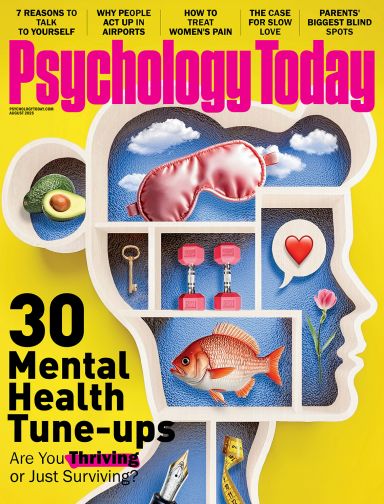There has obviously been a lot of debate, even our little sight, about long hours at daycare. Recently a large study was completed regarding that very question. I think most providers knew this a looonnnggg time ago...
The Trouble With Daycare...
Collapse
X
-
-
Nice share...Thanks!!!
Have saved to favorites for naptime reading....
We are on the second course of lunch as I speak....
Ahhh....the rainy Monday morning, 1st of the month, naptime countdown begins.....: ::
:: ::
:: :
- Unless otherwise stated, all my posts are personal opinion and worth what you paid for them.
:
- Unless otherwise stated, all my posts are personal opinion and worth what you paid for them.
- Flag
-
While I don't doubt the findings, I wouldn't have the good scientific-trained mind I do if I didn't find myself asking more questions--
1) is the relationship between more hours in daycare and higher incidence of behavior problems a correlational or causational relationship?
2) what would they find if they separated out children in centers (large group care) and home daycares (small group)
3) what if they tossed in the kids cared for by nannies?
4) is the "cause" of the higher incidence of behavior problems in kids with more time at daycare (lets assume they only looked at centers) a result of poor parenting/no parenting due to lack of time with the parents, or is it due to poor conditions at the center itself (lack of discipline, etc)?
5) what do the behavior problems look like when adult:child ratios are taken into account?Hee hee! Look, I have a signature!- Flag
Comment
-
I agree, every study begs more questions, that is the nature of science. If fact, when you read the actual study (any study for that matter) it will always list the limitations of the study and ideas for future research.While I don't doubt the findings, I wouldn't have the good scientific-trained mind I do if I didn't find myself asking more questions--
1) is the relationship between more hours in daycare and higher incidence of behavior problems a correlational or causational relationship?
2) what would they find if they separated out children in centers (large group care) and home daycares (small group)
3) what if they tossed in the kids cared for by nannies?
4) is the "cause" of the higher incidence of behavior problems in kids with more time at daycare (lets assume they only looked at centers) a result of poor parenting/no parenting due to lack of time with the parents, or is it due to poor conditions at the center itself (lack of discipline, etc)?
5) what do the behavior problems look like when adult:child ratios are taken into account?
That said, this study still provides interesting information and food for thought when we start looking at kids who spend more than 50 hours a week in care, of which I have several.- Flag
Comment
-
My biggest problem with the article is that it doesn't provide a link to the actual study.I agree, every study begs more questions, that is the nature of science. If fact, when you read the actual study (any study for that matter) it will always list the limitations of the study and ideas for future research.
That said, this study still provides interesting information and food for thought when we start looking at kids who spend more than 50 hours a week in care, of which I have several. Now, it does say that it is an on-going study, so there may not be a link to give, but it still stinks of "science on demand" which bugs me. I come from a very scientific background and am naturally suspicious of things that smell like science on demand.
Now, it does say that it is an on-going study, so there may not be a link to give, but it still stinks of "science on demand" which bugs me. I come from a very scientific background and am naturally suspicious of things that smell like science on demand.
I guess the rest of my problem with the article itself (again, I don't doubt the findings, I just can't help questioning them anyway) is that it doesn't specify what they mean by "daycare"--if it's any care not being done by a parent, if it's centers, if they include home-based, etc. "Daycare" can mean so MANY things to different people, I'd love to know what their definition is.Hee hee! Look, I have a signature!- Flag
Comment
-
Very interesting. What I want to know is a study on children of daycare providers. I would be curious about effects of having a mom or dad being a provider and sharing most of their time between all kids and having other kids in their home a lot of the time.- Flag
Comment
-
Actually, I just chose the most user friendly version...most people want a synopsis of the information, I have actually looked, although NOT STUDIED the actual peer reviewed article. I've got a psych degree and taking a Applied Research class in prep for starting my Masters in the Fall....that is how I originally came across the information...so I completely understand your questioning of using a popular magazine article as opposed to a scientific one.My biggest problem with the article is that it doesn't provide a link to the actual study. Now, it does say that it is an on-going study, so there may not be a link to give, but it still stinks of "science on demand" which bugs me. I come from a very scientific background and am naturally suspicious of things that smell like science on demand.
Now, it does say that it is an on-going study, so there may not be a link to give, but it still stinks of "science on demand" which bugs me. I come from a very scientific background and am naturally suspicious of things that smell like science on demand.
I guess the rest of my problem with the article itself (again, I don't doubt the findings, I just can't help questioning them anyway) is that it doesn't specify what they mean by "daycare"--if it's any care not being done by a parent, if it's centers, if they include home-based, etc. "Daycare" can mean so MANY things to different people, I'd love to know what their definition is.
here you go...http://onlinelibrary.wiley.com.libpr...0.01431.x/full- Flag
Comment
-
Jen,
Do you know of any studies based on the escalating patterns of stress behaviors of child care providers?
Especially the escalating patterns in relation to provider child abuse and/or neglect.- Unless otherwise stated, all my posts are personal opinion and worth what you paid for them.
- Flag
Comment
-
No, but I haven't actually looked for any...I have looked at some really interesting studies on increases of cortisol levels in children attending daycare. Super interesting stuff.
I can run a quick inquiry during nap time tho...- Flag
Comment
-
- Unless otherwise stated, all my posts are personal opinion and worth what you paid for them.
- Flag
Comment
-
I can't access the link since I am not affiliated to SCSU.Actually, I just chose the most user friendly version...most people want a synopsis of the information, I have actually looked, although NOT STUDIED the actual peer reviewed article. I've got a psych degree and taking a Applied Research class in prep for starting my Masters in the Fall....that is how I originally came across the information...so I completely understand your questioning of using a popular magazine article as opposed to a scientific one.
here you go...http://onlinelibrary.wiley.com.libpr...0.01431.x/full- Flag
Comment
-
Just glancing through the thread here, and haven't read through the material, but is this the link to the study mentioned in the first article?
- Flag
Comment
-
I was able to find the information on stress/cortisol levels/provider interaction on a outside of SCSU. This too is not the full study, but since I can't provide the SCSU link, this is the best I can do...
The part about HOW providers teach letters/numbers is especially interesting (to me anyway)
site http://www.sciencedaily.com/releases...0514074919.htm
I included this little section in light of our preschool conversations as of late...
"The study found that about 40 percent of the children showed elevations in cortisol that were large enough to indicate that their bodies were stressed. It also found that cortisol increases over the day were larger in settings where care providers were intrusive or overcontrolling. In such settings, children moved frequently between activities, were given relatively little time for free play, and spent long periods of time in structured activities led by the providers. While many of these structured activities seemed designed to help the preschoolers learn letters, numbers, and colors, the activities weren't carried out in a way that allowed the children to learn actively through play, but rather in a rote fashion that required the little ones to sit quietly and respond when called on."Last edited by DCMomOf3; 02-28-2011, 12:28 PM.- Flag
Comment


Comment